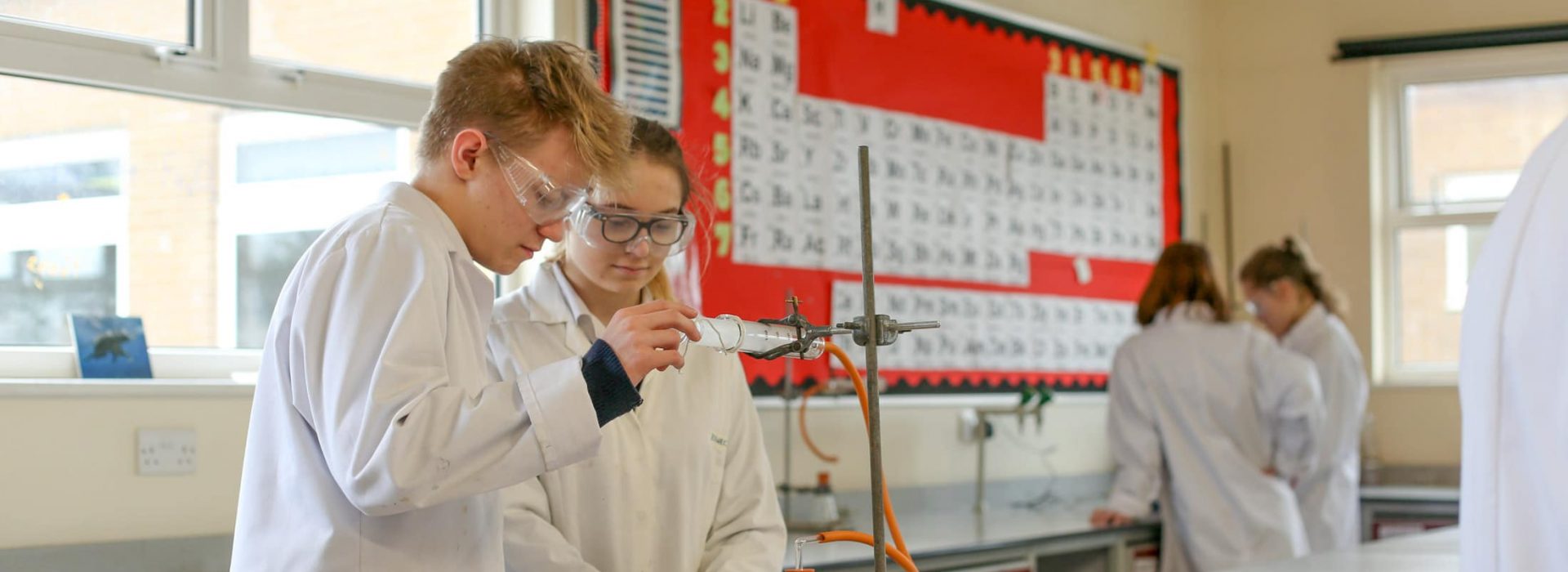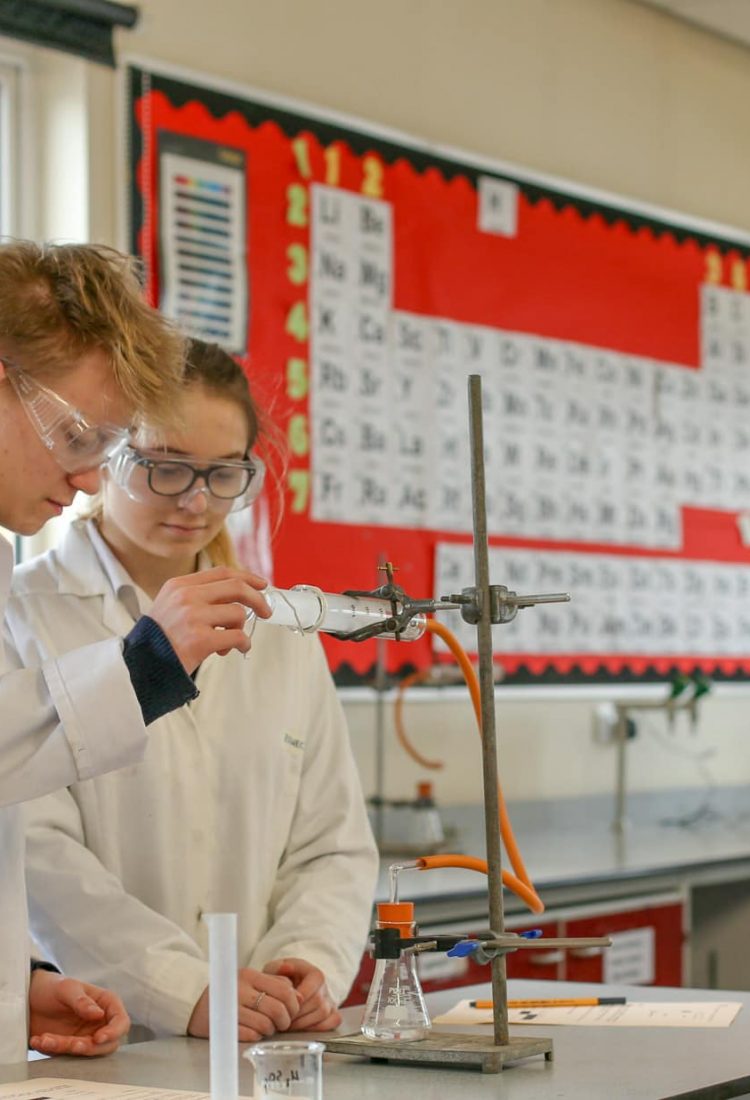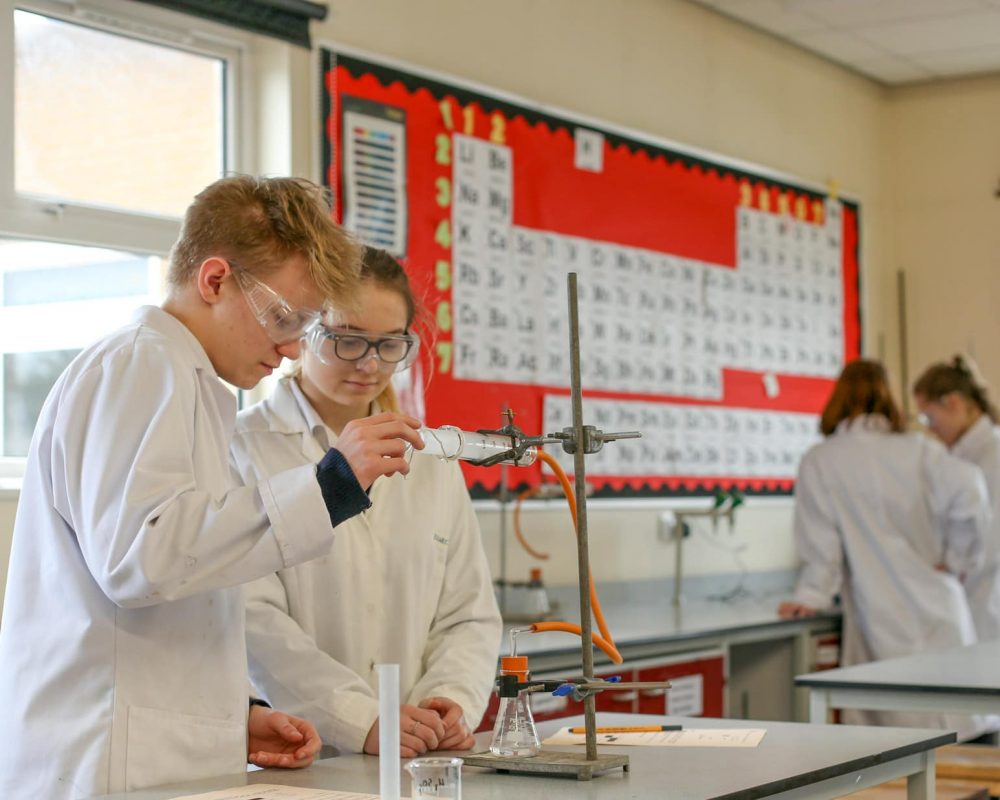Head of Department: Dr C Hall
Department team:
- Mr S Gratton
- Mrs S Hollyoak
Chemistry is the central science and a uniquely creative subject. As a Chemist you can experience the genuine excitement of being the first person to make a new substance. The Chemist’s toolbox is the Periodic Table of 118 elements, which can be connected using chemical bonds to make a limitless number of different compounds. Chemists devise ingenious experiments to understand the behaviour of invisible nanoscopic particles and then use their knowledge to find solutions to real world problems.
Perhaps the greatest challenge to humanity is to mitigate the consequences of climate change and create a sustainable future for our planet. In our curriculum, you will study the origin and impact of pollutants and understand the need for us to modify our behaviour. You will also see the vital role that Chemists play in providing technological solutions, including the synthesis of more efficient solar cells and the use of hydrogen as a clean fuel. Chemists are active citizens who are instrumental in solving a range of other global challenges, such as:
- Finding sustainable approaches to feeding a growing population;
- Developing new medicines to tackle diseases and improve our quality of life;
- Devising new methods to prevent billions of people from drinking contaminated water

What we do
Our aim is to help you to develop the skills and knowledge required to understand how the modern world depends on Chemistry. Today’s Research Chemists solve real world problems, but they all started by understanding the key concepts that you will study at Churston:
- The behaviour of atoms and molecules;
- The reactions of elements and compounds.
In Chemistry lessons, you will learn new practical skills and complete increasingly complex experiments. You will learn how to combine elements into different compounds and discover how Chemists use their skills to separate mixtures and produce pure substances. You will learn to write like a Scientist and apply your mathematical skills to analyse and evaluate your experiments. Above all, you will develop the skills required for success at GCSE and the confidence to embark on a range of exciting careers using Chemistry.
Year 7 | Year 8 | |
|---|---|---|
Autumn 1 | Practical skills | Atoms, elements and compounds |
Autumn 2 | Particles and Solubility | Separating mixtures |
Spring 1 | The Periodic Table Physical and chemical changes | Reactions of metals |
Spring 2 | Making new materials | Reactions of acids |
Summer 1 | Acids, alkalis and indicators | Combustion |
Summer 2 | The application of Chemistry | Earth structure and the rock cycle |


